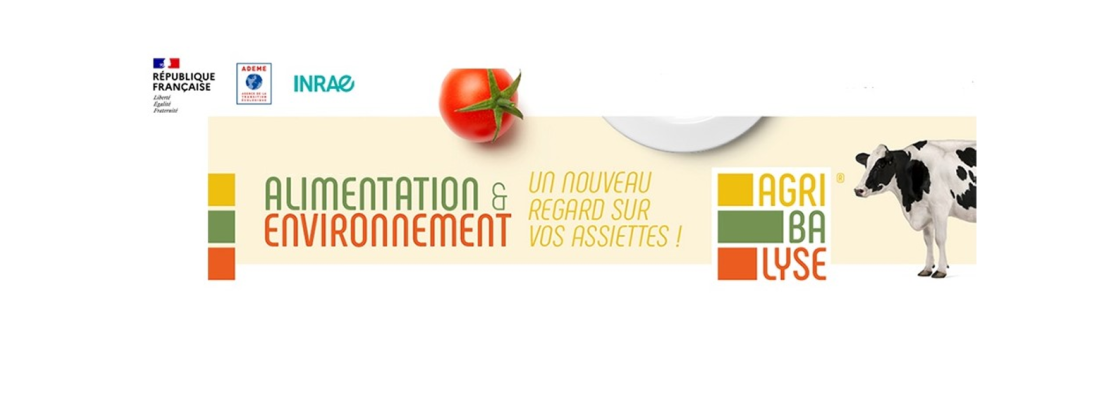Food, Global Health Reading time 3 min
ADEME and INRAE proudly present the new version of the AGRIBALYSE database, to promote sustainable food
Published on 29 September 2020

AGRIBALYSE, the most comprehensive database to measure the environmental impact of food
The database AGRIBALYSE provides benchmark data on the environmental impact of agricultural and food products. Version 3.0, published today, contains both data on raw agricultural products (beef, wheat, etc.) as soon as they leave the farm, and on processed products (burgers, baguettes, etc.) ready to be eaten.
ADEME carried out the work with INRAE for the agricultural aspects and with independent firms for the processing and consumption aspects. Data were collected using Life Cycle Analysis (LCA) methodology which takes 14 indicators into account (climate change, land use, water consumption, consumption of non-renewable resources, consumption of fossil fuels, etc.) for the whole of the life cycle of a product.
An adjustable and transparent tool to make sectors more earth-friendly
Fully one quarter of the carbon footprint of French people comes from food. In light of this, data from AGRIBALYSE can help all agricultural sectors improve production systems and reduce their environmental impact. The primary goal is therefore for all agriculture and agri-food players to take advantage of the tool in order to:
- evaluate the impact of their food products
- implement an eco-design strategy to reduce the impact of production
- keep consumers informed about how they are reducing their environmental footprint.
This database opens up new fields of research that INRAE wasted no time delving into. The impact of a variety of production approaches including organic farming, local production in territories and recycling, the development of agroecology and the bioeconomy, and the uncertainties linked to pooling data are different topics that will ultimately lead researchers to find solutions commensurate with the stakes at hand.
Research will focus in particular on environmental impacts such as biodiversity and carbon storage in soil, which are not yet taken into account in LCAs. This explains why ruminants who currently graze on permanent grasslands score better in terms of biodiversity and carbon storage in soil than intensive farming that relies on imported feed for animals.
| At a glance - 200 raw agricultural products in AGRIBALYSE - 2,500 food products ready for consumption in AGRIBALYSE - 14 indicators help assess the environmental impact of food products |
A first step toward environmental labelling
People want more transparency when it comes to the products they consume. That is why the French government and ADEME have launched an experiment to test different schemes for environmental labelling on food products. The goal is to assess how labelling schemes affect consumer choices, and to encourage people to consume food in a more environmentally-friendly way.
That is where AGRIBALYSE comes in. The database is the perfect tool for measuring the environmental impact of different categories of products.
The AGRIBALYSE platform: https://ecolab.ademe.fr/agribalyse
